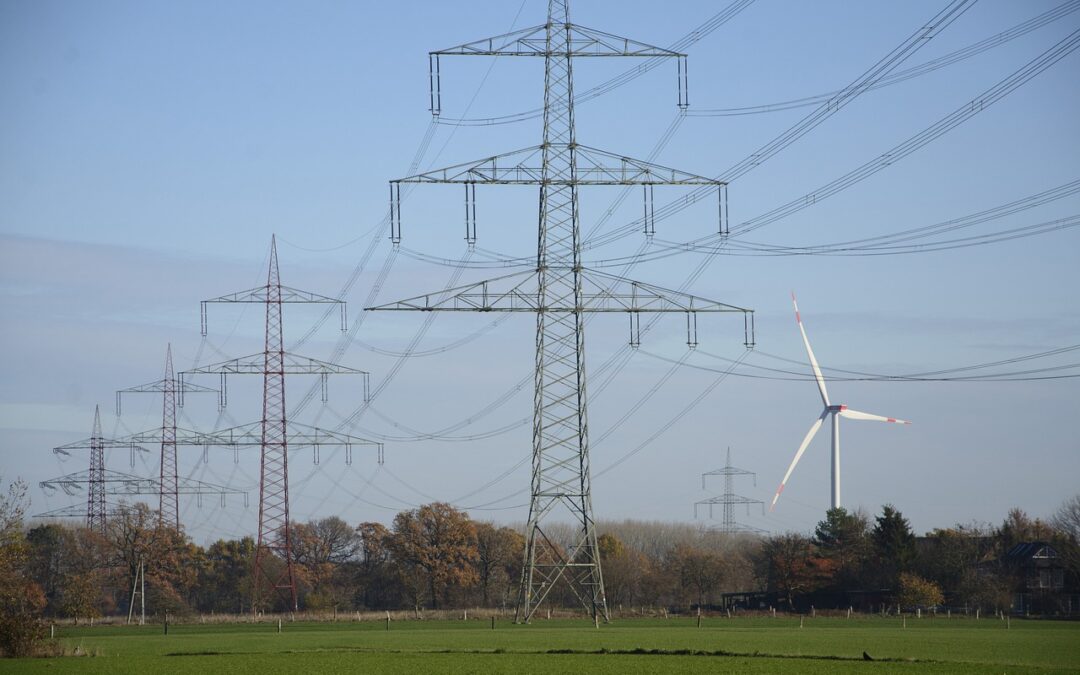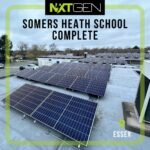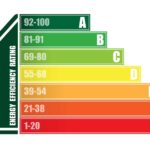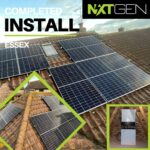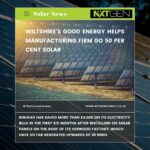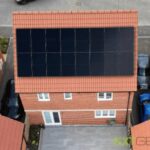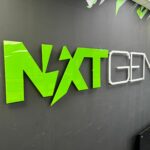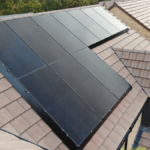Are you wondering what a DNO application is? Or what does DNO stand for? Then read on and find out everything you need to know about DNO applications for solar panels in the UK!
What is a DNO Application?
You need to let your local DNO know if you want to install solar panels or any other energy device that will connect to the National Grid. This is important for your home or business, because your DNO needs to know how much electricity you will use and produce. You can do this by filling out a DNO application form and sending it to the right DNO for your region.
The type of DNO application you need will depend on the size of your solar PV system and whether you have to apply before or after your installation. Generally, the bigger the solar PV system, the more paperwork you need.
Don’t worry if this sounds complicated. Our in-house solar energy team at NXTGEN Energy will handle any DNO applications for you, so you wont have to worry about your DNO application form.
What does DNO stand for?
DNO is short for Distribution Network Operator. DNOs are companies that have the license to deliver electricity from the National Grid to your home or business. The UK has 14 different district networks or DNO regions, which are owned by 6 groups:
- Electricity North West Limited (ENWL)
- Northern Powergrid
- Scottish and Southern Energy (SEE)
- ScottishPower Energy Networks (SPEN)
- UK Power Networks (UKPN)
- Western Power Distribution (WPD)
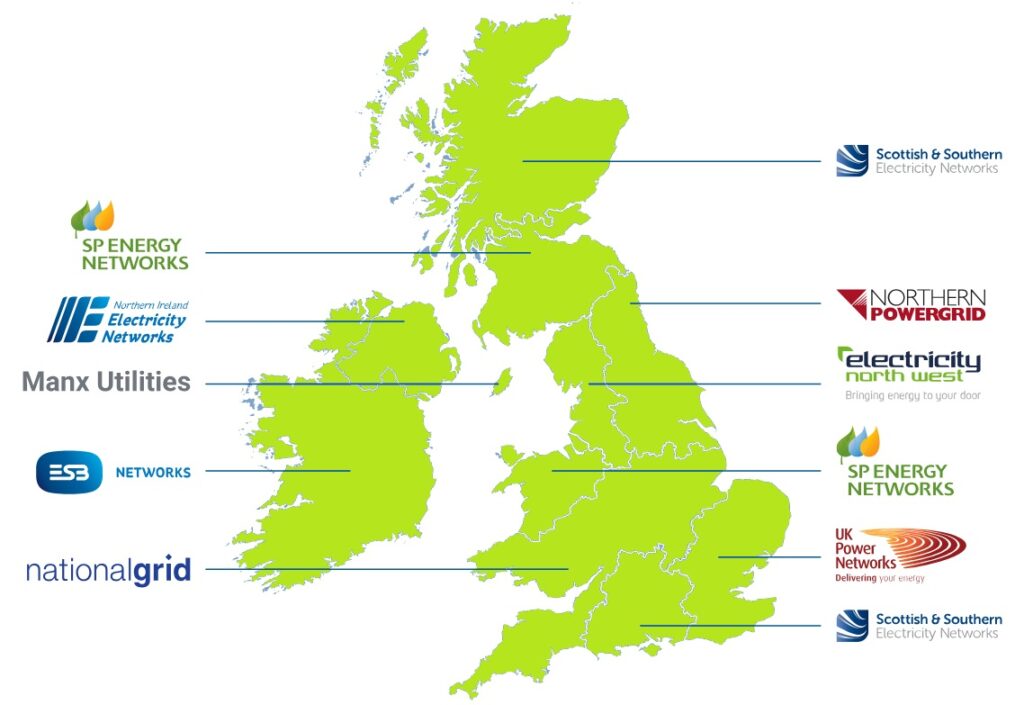
Who is the DNO for my region?
You can easily find out your Distribution Network Operator by going to the Energy Networks Association (ENA) – The voice of the networks website and typing in your postcode. As NXTGEN Energy are a Nationwide solar panel installation company we have worked with all 14 DNOs in the UK.
DNO contact numbers
Finding your Distribution Network Operators (DNOs)
To identify your electricity distributor you’ll need the relevant first two digits shown as part of your MPAN (Meter Point Administration Number).
Your MPAN is the unique identifying number for the electricity meter at your property, often referred to as a ‘Supply Number’ or ‘S’ number. This number is made up of 13 digits highlighted in the bottom row of the illustration below.

For example, the ‘10’ in the bottom row corresponds with the Distribution ID for UK Power Networks in the look-up table below. Alternatively, you can call us on 0845 366 3661 to find out who your electricity distributor is.
The MPAN will be shown on any bills you have, and may also appear on a recent letter or email we’ve sent you.
DNO finder
| MPAN Prefix | DNO Region | DNO Company & Address | Emergency Number | General Enquiries |
|---|---|---|---|---|
10 | East England | UK Power Networks | Free phone number 105 | 0800 029 4285 |
11 | East Midlands | Western Power Distribution | Free phone number 105 | 0800 096 3080 |
12 | London | UK Power Networks | Free phone number 105 | 0800 029 4285 |
13 | North Wales, Merseyside and Cheshire | Scottish Power Energy Networks | Free phone number 105 | 0330 101 0444 |
14 | West Midlands | Western Power Distribution | Free phone number 105 | 0800 096 3080 |
15 | North East England | Northern Powergrid | Free phone number 105 | 0845 070 7172 |
16 | North West England | Electricity North West | Free phone number 105 | 0800 048 1820 |
17 | North Scotland | Scottish and Southern Energy | Free phone number 105 | 0800 048 3516 |
18 | Central and Southern Scotland | SP Energy Networks | Free phone number 105 | 0330 101 0444 |
19 | South East England | UK Power Networks | Free phone number 105 | 0800 029 4285 |
20 | Southern England | Scottish and Southern Energy Power Distribution | Free phone number 105 | 0800 048 3516 |
21 | South Wales | Western Power Distribution | Free phone number 105 | 0800 096 3080 |
22 | South West England | Western Power Distribution | Free phone number 105 | 0845 601 2989 |
23 | Yorkshire | Northern Powergrid | Free phone number 105 | 0800 011 3332 |
24 | Independent | Independent Power Networks Ltd | Free phone number 105 | 01359 243311 |
25 | Independent | ESP Utilities Group | Free phone number 105 | 01372 587 500 |
26 | Independent | Energetics Electricity Ltd | Free phone number 105 | 01698 404949 |
27 | Independent | The Electricity Network Company Ltd (GTC) | Free phone number 105 | 01359 243311 |
28 | Independent | UK Power Networks (IDNO) Limited | Free phone number 105 | 0800 029 4285 |
When do you need to apply for a DNO application?
You need to tell your local DNO provider if you are making any big changes to your electricity connection. A big change means installing any of these green energy devices:
- Solar photovoltaic (PV) Panels
- Heat pump
- EV Electric Vehicle Chargers
- Solar Battery Storage that has back up/islanding* functionality
* Islanding is the condition in which Distributed Generation (DG) equipment like solar battery storage continues to power a location even though external electrical National Grid power is no longer present. Islanding can be dangerous to utility workers, who may not realize that a circuit is still powered, and it may prevent automatic re-connection of devices.
Can you avoid DNO permission?
You need DNO permission for any solar PV system or EV Charger that connects to the National Grid, unless it is an off-grid system. This is because you have to follow the National Grid rules in your region when you connect to it. The National Grid rules will help the UK reach Net Zero in 2050 by managing the growing use of electric devices or energy assets like electric cars and heat pumps. You have to let your local DNO know so they can handle the extra demand and pressure on the National Grid. This is important for avoiding local power cuts and making sure the supply in your region is efficient.
Why do you need a DNO certificate for solar panels?
You need a DNO certificate to install a solar panel system that connects to the National Grid. Otherwise, you will miss out on the Smart Export Guarantee (SEG) scheme payments from the National Grid, which is a reward for being connected to the National Grid.
Different types of DNO applications for solar panels
The type of DNO application you need depends on the size of your solar PV system. The size is measured by the AC inverter rating, not the peak DC rating of the solar panels. There are two main types of DNO applications: “connect and notify” or “apply to connect”.
DNO G98 Applications
For small-scale Distributed Generation (DG) equipment at your home or business, you need to contact an MCS certified solar PV installer, like NXTGEN Energy. Your system must be under 16A per phase to be small-scale. That means 3.68kWp for a single-phase supply or 11.04kWp for a three-phase supply. If you are not sure about your system size, you should ask your solar panel installer.
Your installer will do an Adequacy of Supply (AoS) check to see if your current electricity supply can handle the extra load. If it can, your installer can put up your solar panels without asking for the DNO first. But you will have to tell the DNO within 28 days after the solar PV system is set up. This is because a small-scale system usually does not cause any problems for your local grid. If your current supply is not good enough, your installer may have to upgrade it before installing the solar panels.
DNO G99 Applications
For large-scale solar systems, greater than 16A per phase, you will have to get DNO approval before installation. This is because the National Grid has to check if your local distributor can deal with the extra load. The DNO may take 8 to 12 weeks to review your DNO application. If your Distributed Generation (DG) equipment is rated at 50kW or more, you will have to fill out a Standard Application Form (SAF) as well.
DNO G100 Applications
If your G99 application says that your system’s export has to be limited, you’ll need a G100 application form. At NXTGEN Energy, about 5% of our DNOs for solar panels get limited. A G100 DNO will cost you an extra £300-£750 for the application, and it will also take longer to install your solar PV system, because you’ll need an extra device with it.
The outcomes of a DNO application
You will usually get a connect offer letter after your DNO application is checked. This tells you the maximum specification of the connection and if you have to pay any connection charges. There are usually three results of a DNO application.
- Your application is approved: your DNO is fine with the size of the solar PV system you want to install. This means you can go ahead with your installation, with no extra costs or changes.
- The system size is limited to a certain kWp AC rating: you need an export limitation. Sometimes you’ll have to pay a small fee for a DNO witness test, where your provider makes sure a limitation is in place.
- You need to upgrade your supply size from a single-phase to a three-phase system to install your solar panels: this extra charge can be expensive depending on the site, and is normally related to the size of your property.
If the DNO rejects your application to connect, you may have to install an export power management system to control the electricity generated from the solar PV system that goes to the National Grid.
How much does a DNO application cost?
You don’t have to pay for the G98 DNO application for “connect and notify”, but your solar panel installers may charge you some fees to handle the application. The G99 and G100 applications can cost you anywhere between £300 – £750 each, with Scottish Power often being the most expensive as your DNO sets the price.
How long does a DNO application take?
The DNOs are taking longer to process because of the high demand for homegrown energy in the last year. A G98 application for solar panels usually takes about 3 months, but a G99 can take up to 4-6 months lately, even though it is supposed to only take around 8-12 weeks.
MCS Certified Solar Panel Installers
You don’t have to worry about DNO applications, if you choose NXTGEN Energy, the experts in DNOs for solar panels. If you want to install solar panels, solar batteries or EV chargers for your home or business in the UK, call our solar energy team today at 01268 928 690, email info@nxtgen.ltd or click on the ‘Enquire Now’ button below and get our 5-Star service. We include all DNO applications in our solar packages, and we serve the whole country, so don’t hesitate to contact us.
Frequently Asked Questions about DNO Applications
DNO stands for a Distribution Network Operator. They are the energy companies that control all the towers, cables, and electricity distribution within their designated area. When you are looking to install any solar panel system, such as EV charging infrastructure, you must complete a DNO application.
This is done by simply filling out a DNO application and sending it to your relevant Distribution Network Operator for your region. The size of your solar PV system will determine the type of DNO application you will have to complete and if you will have to apply before or after installation.
A G98 DNO application is free. This is because it is known as a “connect and notify” and covers small solar PV systems, which are under 16amp per phase. For larger systems, covered by G99 and G100 applications, there is a fee, usually between £300 and £750. Most home solar systems will be covered by a G98 DNO application.
The DNO will normally be in touch with you within 45 days for low voltage energy devices and 65 days for high voltage energy devices to approve installation or make further contact about appropriate amendments needed.
DNO permission is also required for any solar battery storage system that has backup functionality and that ‘islands’ the property from the National Grid in the event of a power cut.
What is the process for notifying a DNO of a Solar PV System installation? You must notify the relevant DNO in your region of your electricity generating installations in all instances, including Solar PV technologies.
Their main task is to run the distribution of electricity from the National Grid to your house or your business’s premises. DNOs are responsible for the network of overhead lines, cables, pipes, transformers, meters, and towers that deliver energy to your home.
If you are connecting single or multiple phase generators at multiple premises of up to 16A (3.68kW) per phase, you need to complete a G98 DNO application form before you can connect. If you are connecting large scale generation, above 16A (3.68kW) per phase or energy storage, then you will need to complete a G99 DNO application form.
Latest Solar Panel Posts
- Why Leisure Centres Should Invest in Solar PanelsIn recent years, the concept of sustainability has become increasingly vital in various industries, including leisure centres. As the global focus shifts towards environmental conservation and renewable energy sources, leisure centres are recognizing the importance of investing in sustainable practices to reduce their operating costs and their carbon footprint. One such sustainable solution gaining traction… Read more: Why Leisure Centres Should Invest in Solar Panels
- School Funding – Solar for SchoolsSolar energy is revolutionizing the way educational institutions approach sustainability and energy consumption. As schools seek innovative solutions to reduce costs, educate students about renewable energy, and minimize their environmental impact, the adoption of solar power has emerged as a compelling choice. Solar For Schools, a leading initiative in the field, empowers educational institutions to… Read more: School Funding – Solar for Schools
- Homes with solar panels can sell for more than those withoutHarnessing the power of the sun to generate clean, renewable energy is not only a sustainable choice for homeowners but also a lucrative investment in the UK property market. Homes equipped with solar panels are increasingly commanding higher prices and attracting more buyers than their non-solar counterparts. In this blog post, we’ll delve into the… Read more: Homes with solar panels can sell for more than those without
- Solar Panels and EPC RatingsSolar panels have become increasingly popular as a sustainable energy solution, offering numerous benefits for both residential and commercial properties. In parallel, Energy Performance Certificate (EPC) ratings serve as indicators of a building’s energy efficiency. Understanding how solar panels can impact EPC ratings is crucial for maximizing energy savings and environmental benefits. This blog post… Read more: Solar Panels and EPC Ratings
- Is it worth buying solar panels in Basildon, Essex?☀️ Over 10,000 homes in Basildon have a solar panel system installed. ☀️ You’ll normally break even on solar panels in less than 10 years. ☀️ A 3.5kW solar panel system will cost about £7,000 on average. Solar panels are becoming more affordable and more common in the UK, with over 1.3 million households already… Read more: Is it worth buying solar panels in Basildon, Essex?
- Wiltshire’s Good Energy Partners with bigHead to Achieve 50% Solar Energy GoalWiltshire-based Good Energy has played a crucial role in helping Dorset manufacturing firm bigHead transition to utilizing solar power for 50% of its energy needs. Thanks to the collaboration between the two companies, bigHead has successfully installed 130 solar panels on the roof of its Verwood factory, resulting in significant cost savings of over £4,000… Read more: Wiltshire’s Good Energy Partners with bigHead to Achieve 50% Solar Energy Goal
- Unveiling the Perfect Fit: How Many Solar Panels Can Your Roof Handle?Harnessing the power of the sun is an attractive proposition for many UK homeowners. But before diving headfirst into solar energy, a crucial question arises: how many solar panels can fit on your roof? The answer, unfortunately, isn’t a simple one. It’s a captivating interplay between several factors, each one requiring careful consideration. Understanding Your… Read more: Unveiling the Perfect Fit: How Many Solar Panels Can Your Roof Handle?
- Powering Care with Sunshine: How Solar Panels Benefit Nursing HomesNursing homes are the backbone of our communities, providing essential care for our elderly population. But keeping these facilities running smoothly requires a significant amount of energy – lighting, heating, cooling and medical equipment all contribute to a hefty energy bill. This is where commercial solar panels come in, offering a win-win solution for both… Read more: Powering Care with Sunshine: How Solar Panels Benefit Nursing Homes
- Who are NXTGEN Energy Ltd?NXTGEN Energy Ltd are a solar energy company based in Rayleigh, Essex, UK. They specialize in the installation of solar panels, battery storage systems, and electric vehicle chargers for homes and businesses across the UK. They are MCS certified, which means they meet the Microgeneration Certification Scheme’s standards for quality and safety. This makes them… Read more: Who are NXTGEN Energy Ltd?
- Why UK Homeowners with Solar Panels Need Bird Proofing (Beyond the Basics)Imagine waking up to the quiet hum of your solar panels, generating clean energy to power your home. It’s a beautiful image, symbolizing lower electricity bills and sustainability. But what if a gang of birds decided the solar panels on your roof were the perfect spot for their new condo complex? Unfortunately, this idyllic scene… Read more: Why UK Homeowners with Solar Panels Need Bird Proofing (Beyond the Basics)
- Solar Panel FinancingAt NXTGEN, we are committed to delivering excellent service and we understand that many customers may prefer the option of paying for their solar panels with finance. So, we’ve partnered with established credit brokers, Ideal4Finance, to enable customers to spread the cost of purchase with manageable monthly payments. We can offer 3 Flexible Finance Options… Read more: Solar Panel Financing
- How AI could supercharge your solar panelsImagine stepping outside on a crisp January morning, a mug of steaming tea warming your hands. You glance at your rooftop, not with dread at energy bills, but with a mischievous grin. Why? Because the sun, that cheeky orb in the sky, is being squeezed for every juicy watt it holds thanks to your AI-powered… Read more: How AI could supercharge your solar panels

